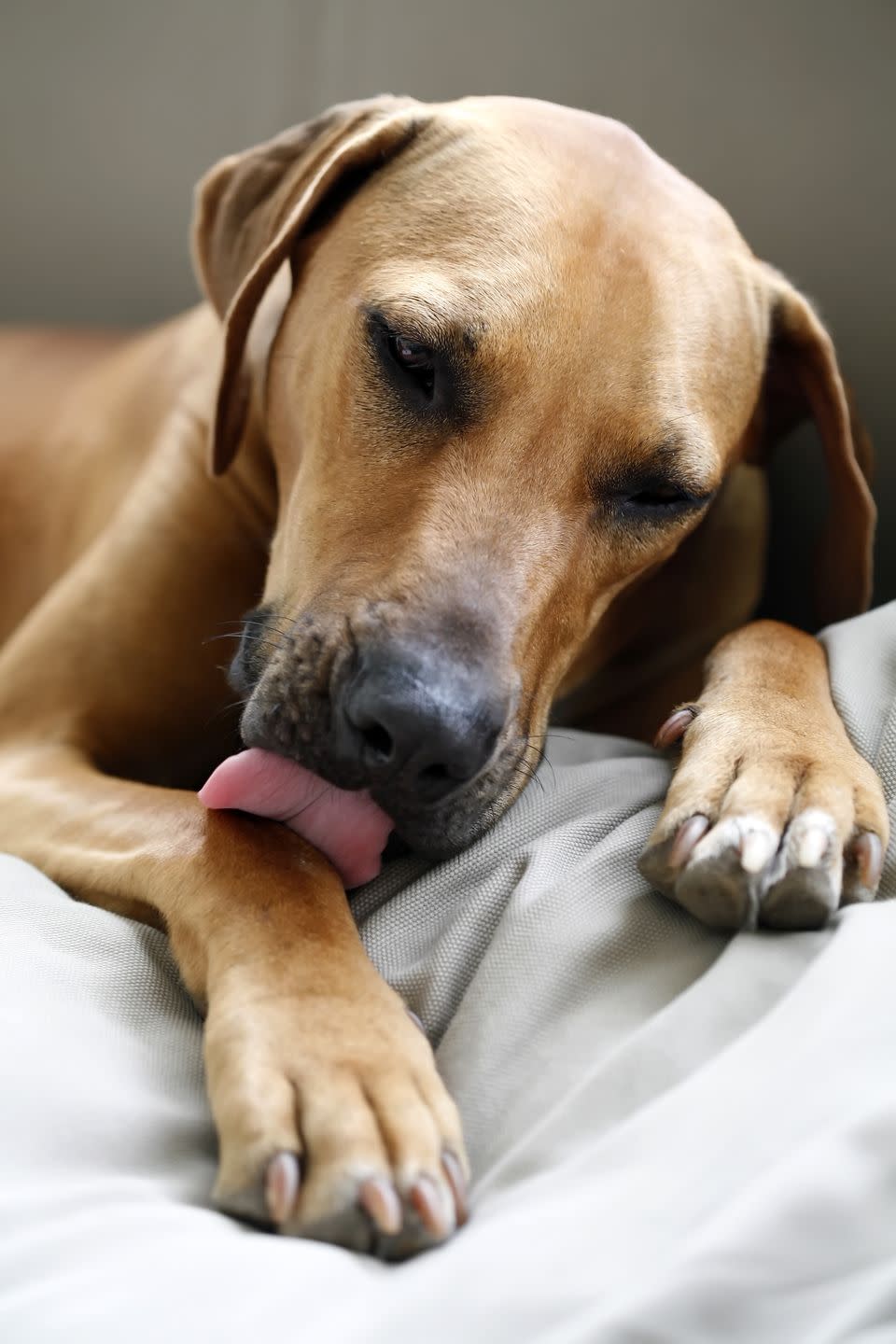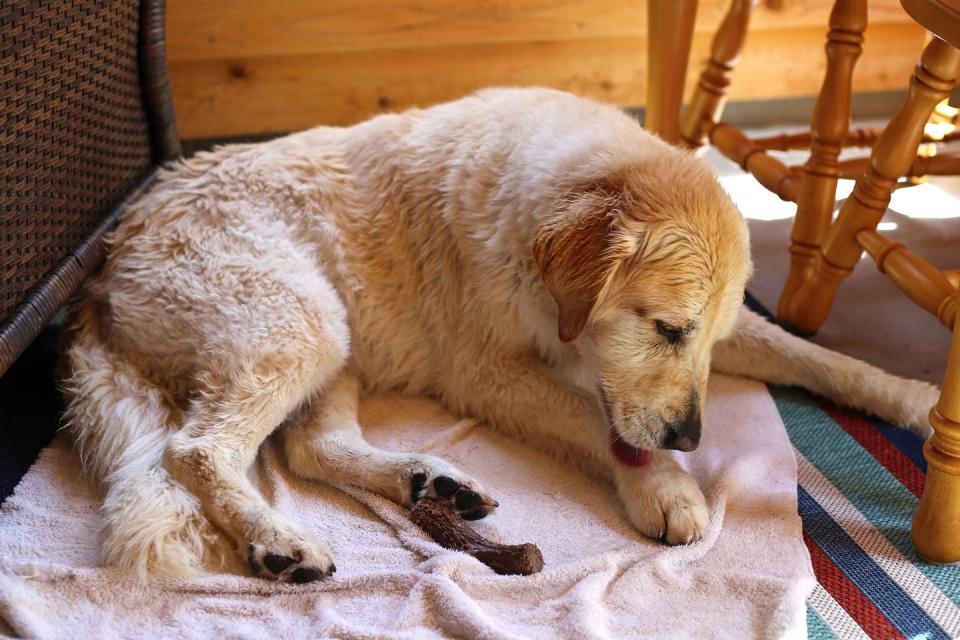Why Do Dogs Lick Their Paws? We Asked a Veterinary Dermatologist

As pet parents, it can be difficult when our dogs aren't feeling their best because it can be so hard to determine the cause of their discomfort. After all, they can't verbalize their feelings, but they can certainly send us signs. One signal that something may be amiss with your dog's health is paw licking.
The reasons why dogs lick their paws can vary, from a simple itch to something more serious. Dr. Fiona Lee, board-certified veterinary dermatologist at Animal Dermatology Clinic, explains what to look for and when to contact your vet.
Why do dogs lick their paws?
Dr. Lee explained that there are several reasons a dog may lick its paws. Schedule an appointment with your veterinarian if licking persists to determine the cause.
Trauma or foreign body—Anything from a cut to a broken nail to a splinter could cause discomfort.
Secondary infections—A vet can check for infections including staph bacteria, malassezia yeast, and demodex parasites. Dr. Lee says, "These may seem chronic if left untreated or treated incorrectly."
Allergies—Dr. Lee explains that fleas are the most common allergy, but paws tend to be less affected. Food allergies are less common but the paws can be affected. Environmental allergies can be diagnosed by exclusion.
Hormonal diseases—Dr. Lee explains that paw licking can be indicators of hypothyroidism and hyperadrenocorticism.
Autoimmune diseases—Dr. Lee says autoimmune diseases including pemphigus foliaceus and symmetrical lupoid onychodystrophy could be responsible.
Cancer—Cancer should be ruled out, especially in older pets.
Chemicals—Contact allergies from chemicals are relatively rare. Dr. Lee said there will typically be lesions elsewhere on the body. If you have concerns about chemical contact, clean the paws with a pet-safe wipe and contact your vet.

When does paw licking require medical attention?
Dr. Lee advises an appointment with the veterinarian if the pet is constantly licking its paws. She cautions, "Reprimanding them is not a helpful medical measure. If anything, they'll just go into another room to lick. If the pet is causing self-trauma, place a cone. They will not know when to stop."
Pet owners should see a veterinarian if there are signs of acute pain or discomfort, like limping. If signs do not resolve quickly, then also see a vet. If there is chronic paw licking or infections, then a veterinary dermatologist is recommended.
Dr. Lee recommends asking the vet for cytology (i.e. looking at slides under the microscope) during the visit. She explains, "All too often, despite this concerning era of bacterial resistance, antibiotics are being used when antifungals or anti-inflammatories are needed instead."
You can typically wait to see your primary care veterinarian or dermatologist, rather than going to an urgent care or emergency vet. Dr. Lee explains, "If there is no life-threatening reason for paw licking, and the pet is otherwise systemically well, then schedule an appointment with your primary care veterinarian or dermatologist." It may be necessary to see a specialist if the condition persists.
What can pet owners do at home?

If you have any concerns about your pet's health, a trip to the vet is in order. Dr. Lee recommends a few things pet owners can do at home. If the dog licking is limited to one paw, Dr. Lee suggests checking it for a foreign body, such as a grass awn, thorn, bee stinger, or splinter. It's helpful to train your pet to tolerate their paw being touched before any discomfort (she recommends Fear Free for examples of positive reinforcement training). Dr. Lee explains, "Do not touch the paw if the pet is uncomfortable enough to growl or certainly bite."
To prevent licking, Dr. Lee recommends using a cone, not a sock. She says, "Taping a sock on can potentially cut off blood flow. Covering the paw can also change the environment, thus encouraging secondary bacterial or yeast infections." Additionally, she explains, you should not use hydrogen peroxide or rubbing alcohol.
Are there behavioral causes for paw licking?
Dr. Lee says, "An owner should not assume that paw licking is behavioral." Instead, a vet should rule out medical causes first. Place your pet in a cone and schedule an appointment with your vet. Dr. Lee says, "Do not try anti-anxiety over-the-counter supplements without guidance."
She continues, "If there seems to be a very tight correlation between a certain activity and paw licking [ex. going outside, eating a certain food, packing a suitcase, ringing a doorbell], it's ok to make a note of it or even take a video of it." Then discuss the behavior with your vet.
You Might Also Like


